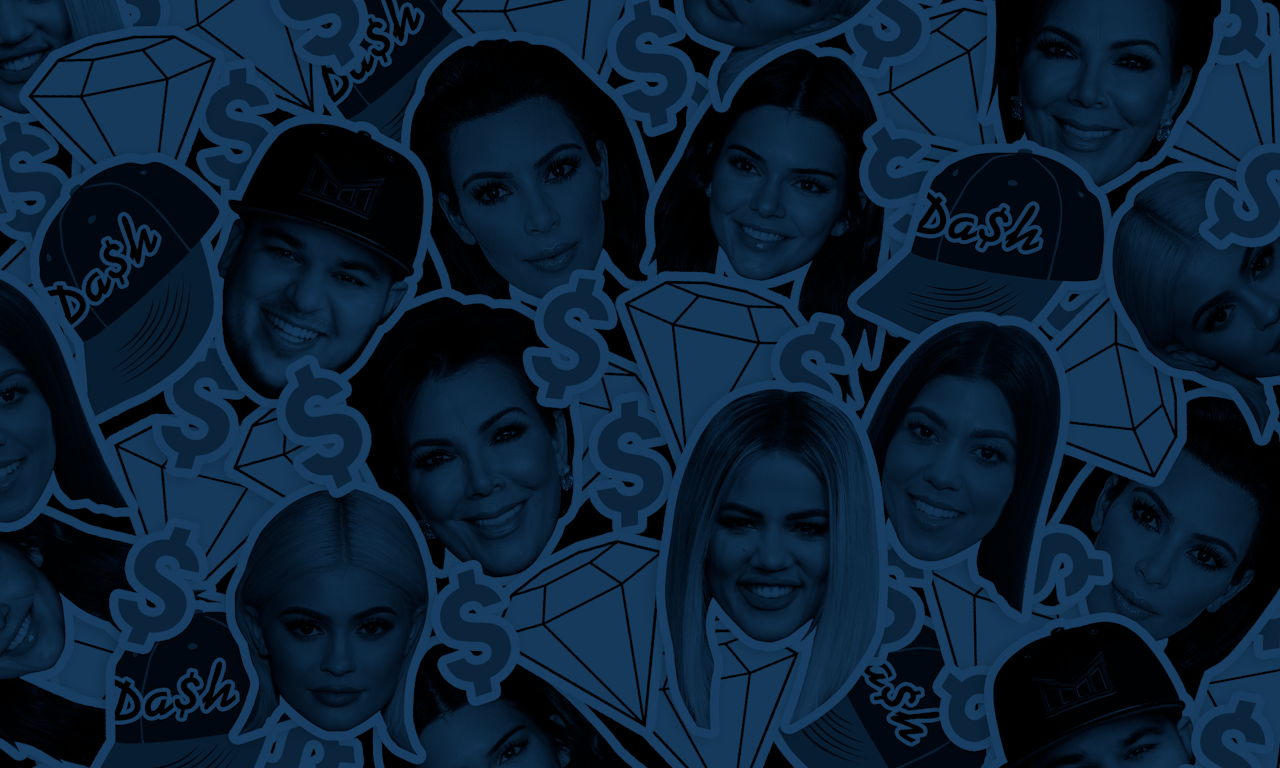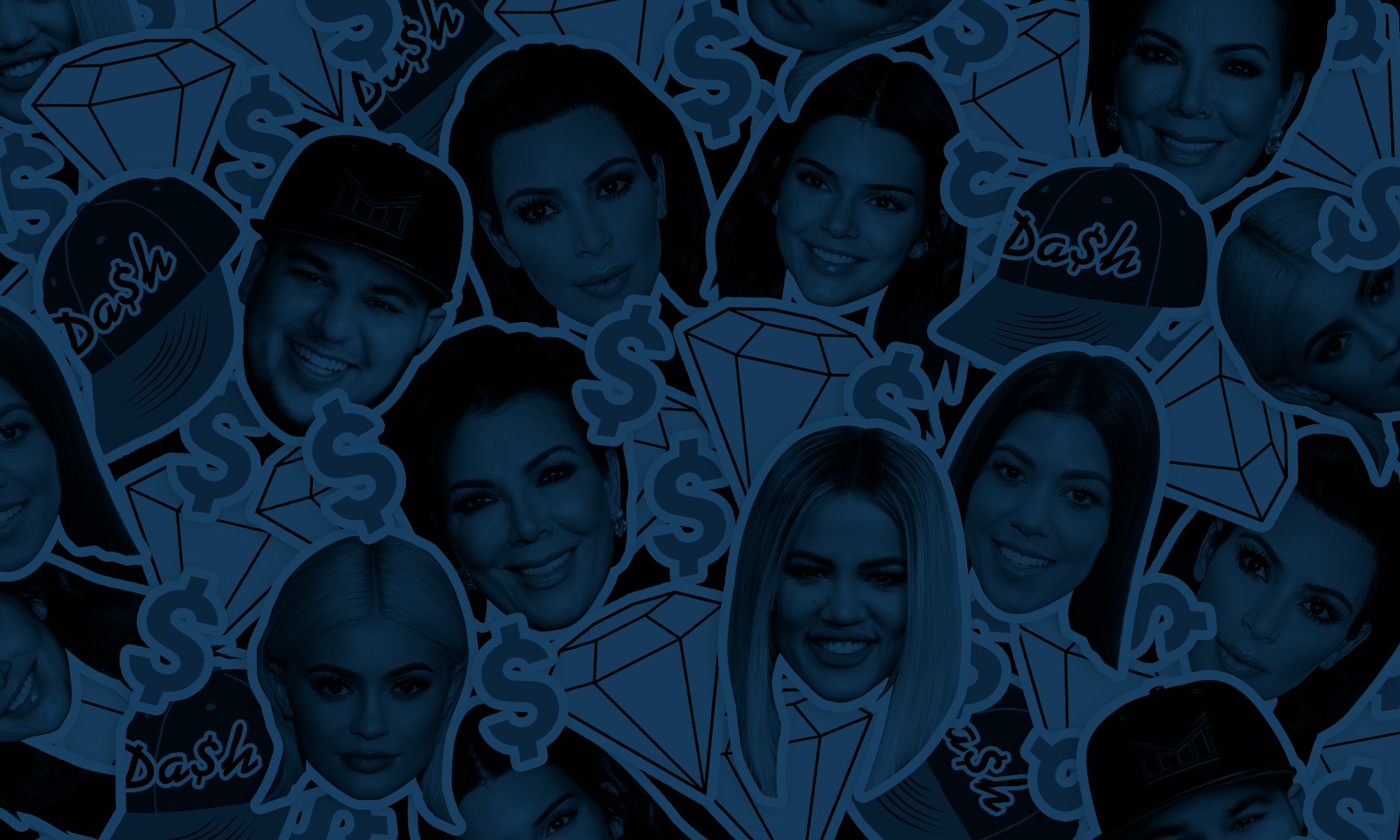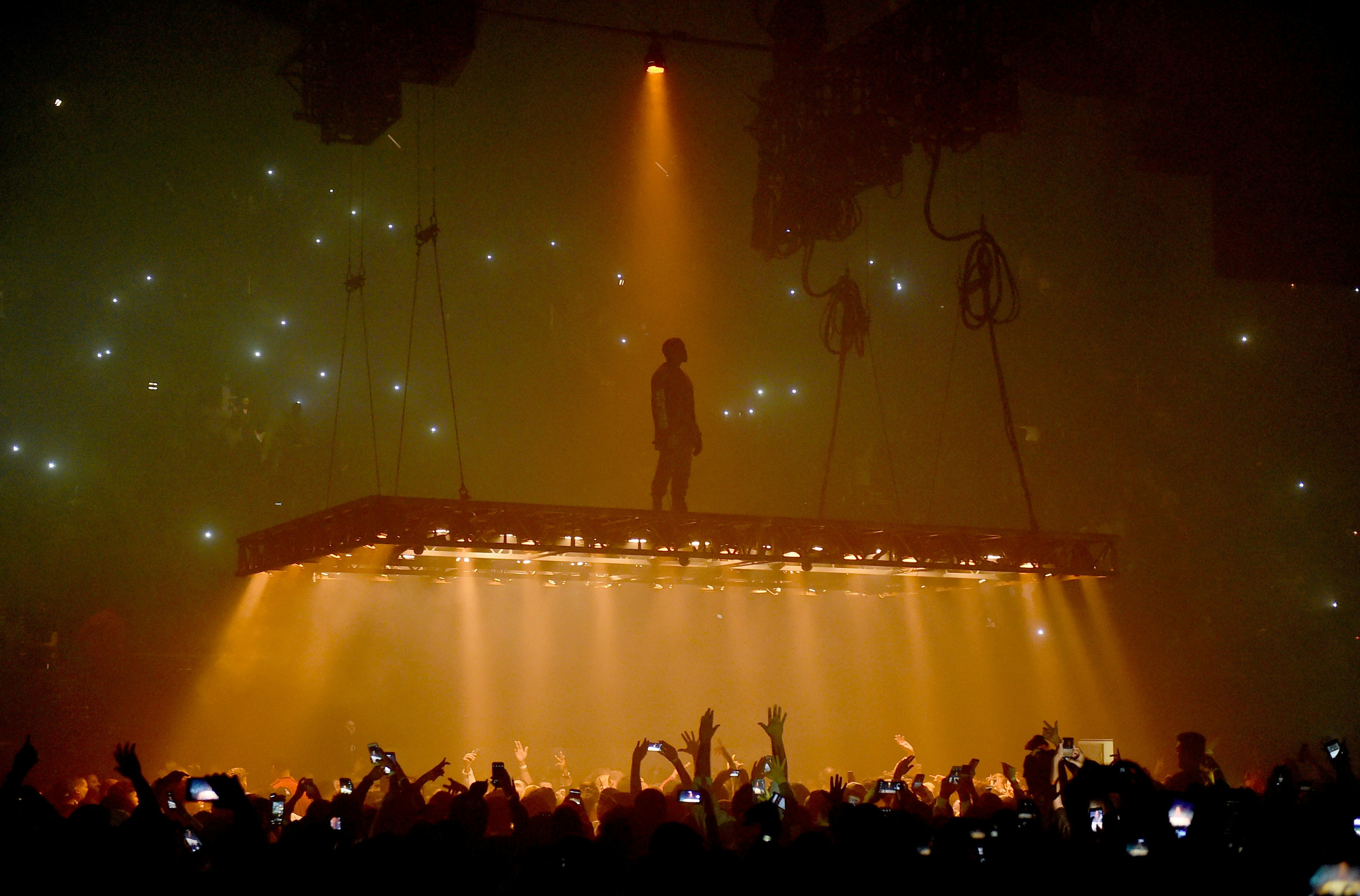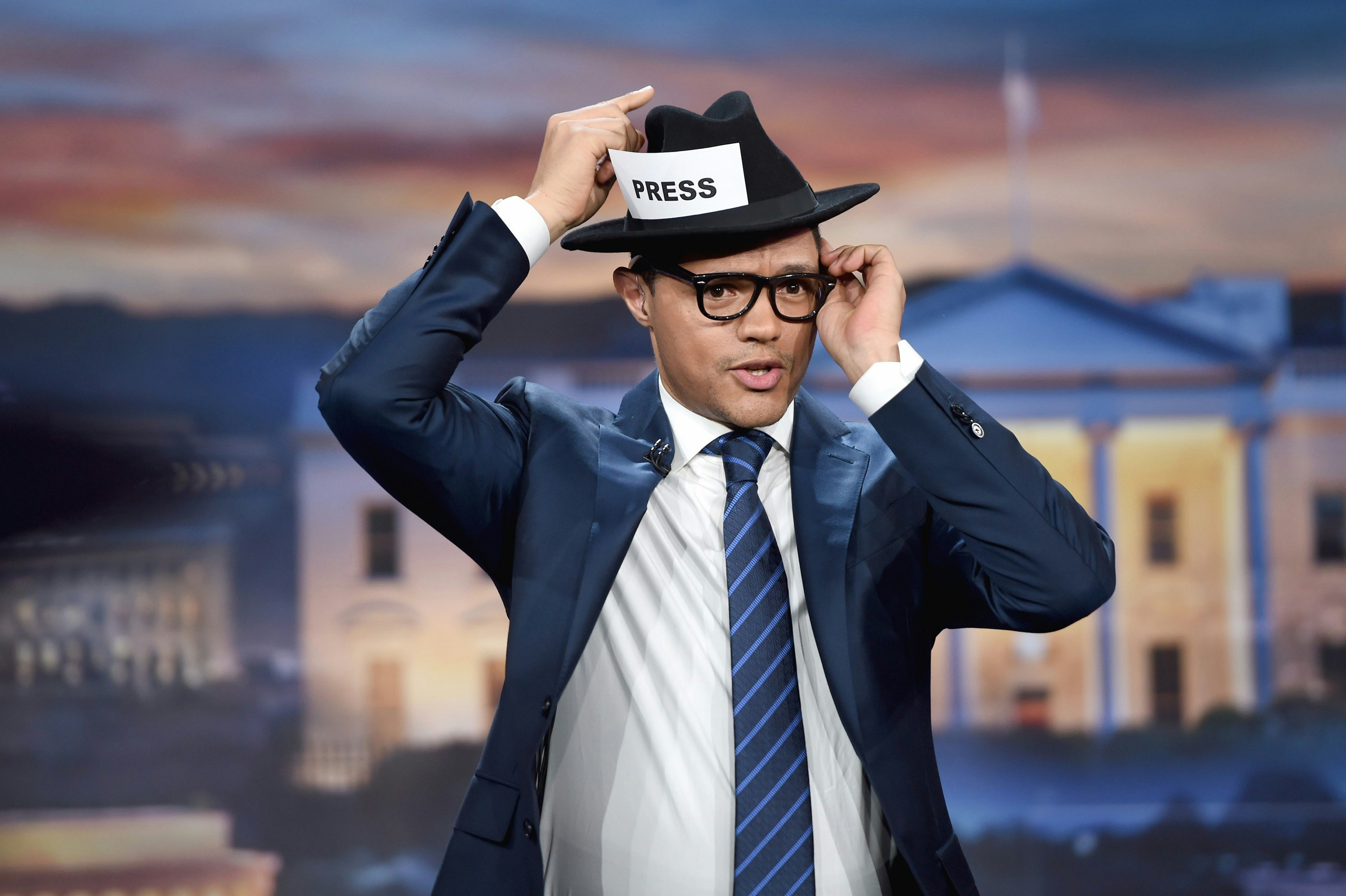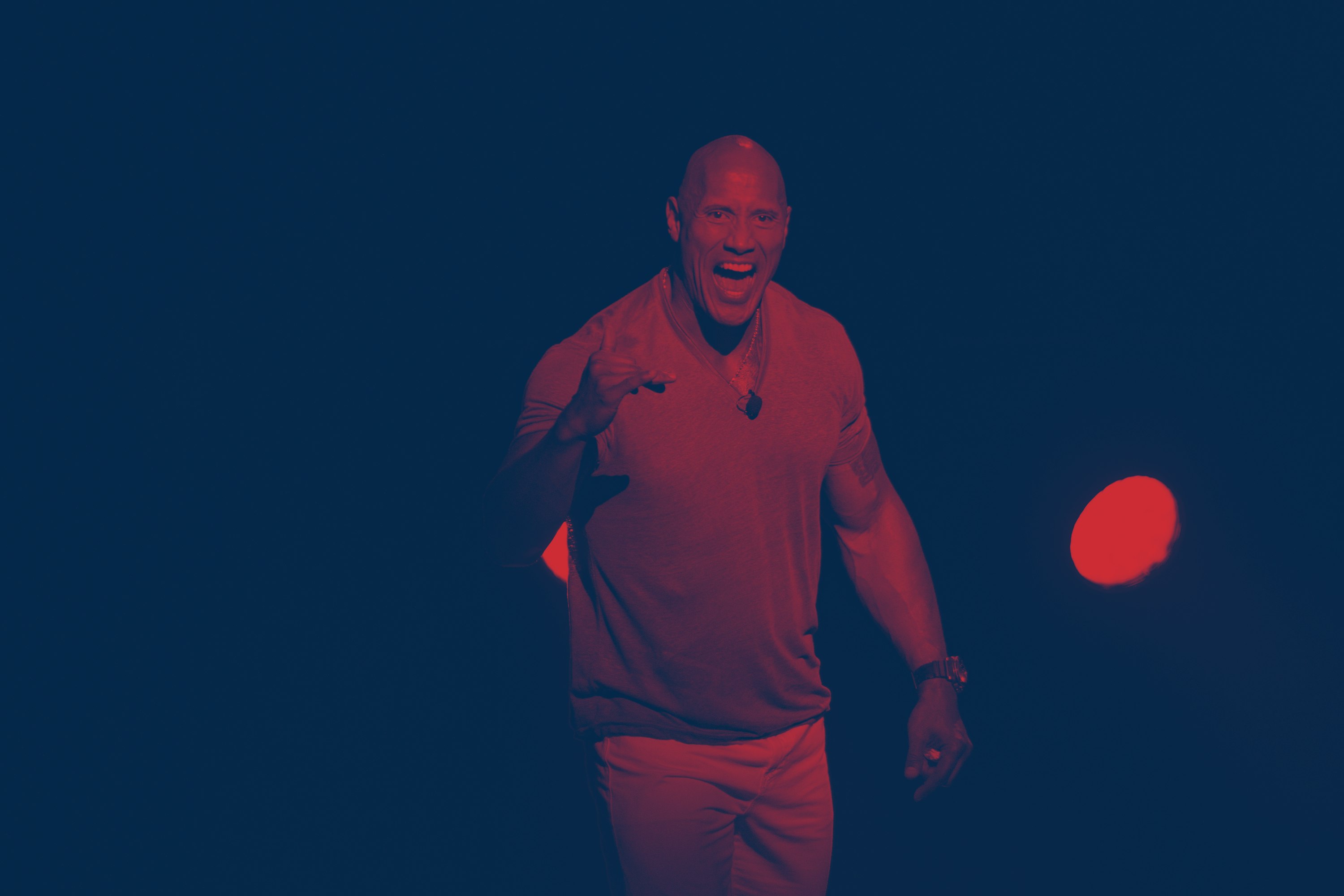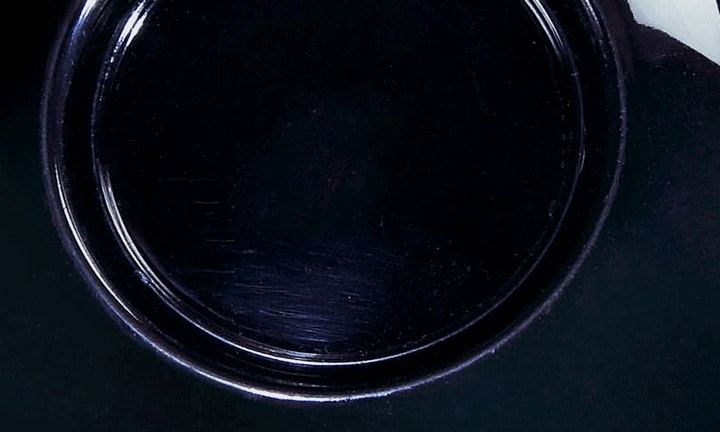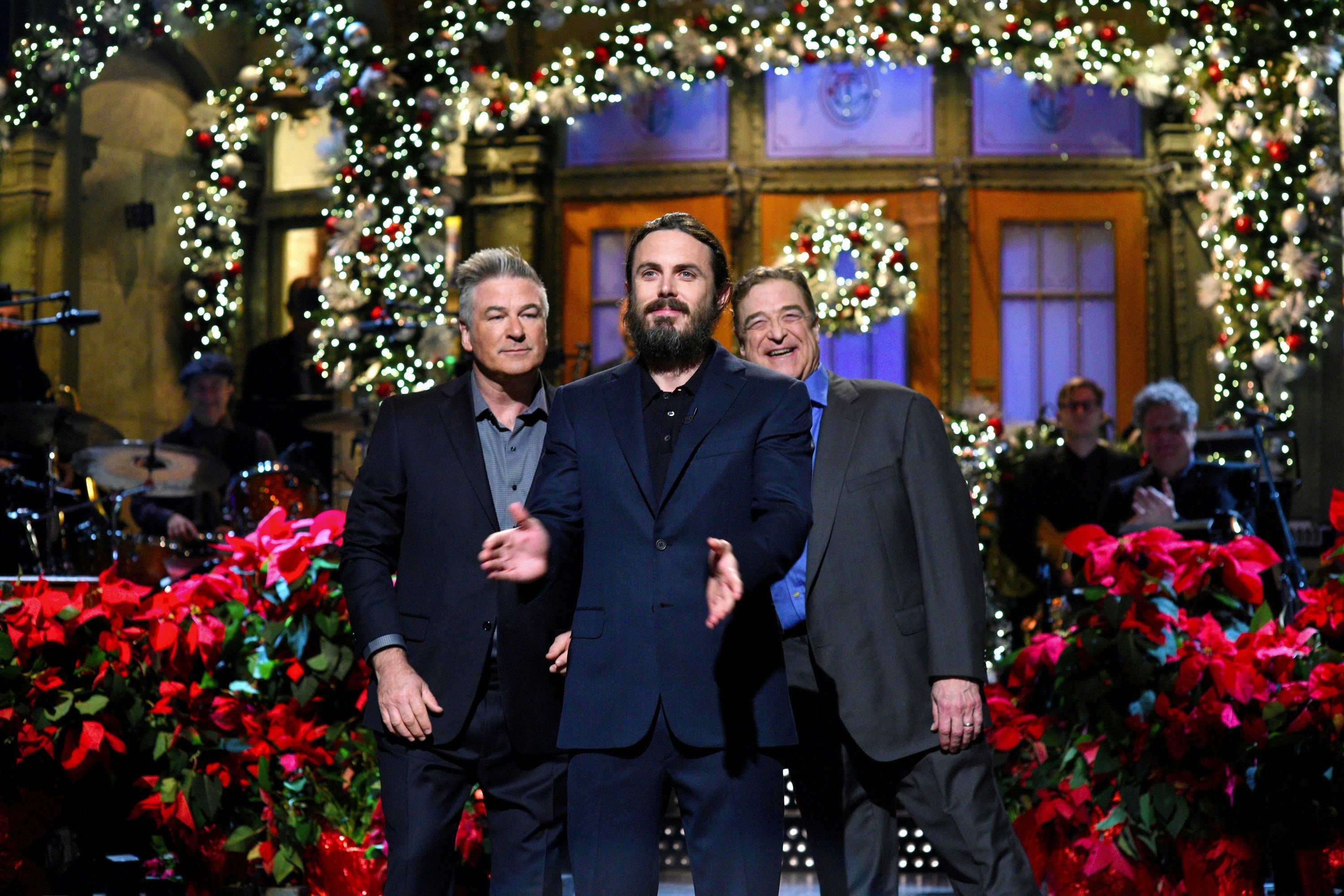If you were stranded on a desert island, you could live for a reasonable amount of time on Kardashian-Jenner branded consumer products. For food, there’s Va-Va-Vanilla, a cupcake mix created by Kim, and Couture Pops, a bejeweled lollipop endorsed by Kylie. For shelter, there’s a great swath of Kardashian-branded home goods: bath mats, towels, shower curtains, soap dispensers, tiger-print throw pillows. For warmth, you could create a bonfire out of garments from the family’s 12-plus clothing lines, doused in 10 perfumes for extra flammability and lit with the Kardashian-branded matches from their defunct Kardashian Khaos retail store. When supplies run low, you could go on a liquid Teatox diet and die skinny.
It’s been said many times that the Kardashians are famous for being famous. This is typically meant as a jab, meaning that they’re famous for doing nothing. In fact, they’ve done a great deal of things: cosmetics, clothing, financial products, food, beverages, downloadable emojis. This kind of self-franchising isn’t original. By the time a pre-teen Kendall Jenner was twirling on a stripper pole on E!, Martha Stewart had imbued a million dish towels with her essence. Yet no matter how many you bought, you could never become Martha. The Kardashians, meanwhile, have made their name into a category. It’s flexible enough to describe such a staggering number of products that perhaps it’s flexible enough to describe you, too.
Kendall, Kylie, Kim, Kourtney, Khloé, Kris, and Rob have 216 collective trademark applications. “Don’t be a bore, be a whore!” is a clothing line from KhloMoney, Inc.; “Cover the Camel” is another, presumably with thicker fabric. Kardashian Khaos, registered by 2Die4Kourt, covers products including Christmas tree ornaments, gaming chips, and yo-yos. Kimsaprincess, Inc. has trademarked more types of bags than I knew existed: beach bags, diaper bags, duffel bags for travel, carry-on bags, leather and imitation leather bags, leather suitcases, military duffle bags, overnight bags, bags used as backpacks, key cases, wallets, tote bags, shoulder bags, cosmetic bags sold empty, backpacks, athletic bags, satchels.
Who buys this stuff? In some cases, no one
Who buys this stuff? In some cases, no one: Around half of the family’s trademark applications were ultimately abandoned. Other Kardashian enterprises succeed wildly, though the rhyme or reason some fail while others do not is mysterious. Yes: Khloé’s memoir, Strong Looks Better Naked (97,000 copies sold since it came out last fall, according to Nielsen BookScan data). No: Kendall and Kylie’s dystopian YA novel (17,000 copies sold since the summer of 2014). Recently, Kylie Jenner’s lip kit, a liquid matte lipstick and liner duo, sold out within 10 minutes, despite the fact that Jenner herself had previously admitted to getting Juvéderm injections (service not included with the $29 kit). Khloé Kardashian’s latest venture, the denim brand Good American, sold $1 million worth of jeans on its first day of launch, according to a company press release.
In a family where most everything is public — bikini waxes, breakups, transitions — there is one thing that’s very much private: how much money their myriad companies actually make. They’re not always companies, in fact, but a mix of licensing deals, in which other brands pay to be able to use a famous name; sponsorships, where a celebrity agrees to appear in #ads and generally shill for, say, QuickTrim diet pills; and businesses that the family does in fact own itself, whose products are mostly produced by outside manufacturers (Spatz Labs for Kylie Cosmetics, Universal Hosiery for Arthur George, Rob Kardashian’s sock line). In most cases, these entities and their partners are privately owned, which means details are near impossible to find and usually emerge only when something goes wrong and contracts make it into court records.
The thing is, if you have as many businesses as the Kardashians do, something is bound to go wrong. Kardashian Beauty, a cosmetic line caught up in a trademark dispute, was expected to earn Kourtney, Khloé, and Kim $4,686,125 or $4,985,000 in guaranteed minimum royalties over a four-year period, according to SEC filings by the licensee. For shilling Frownies, an anti-aging infomercial product, Kris Jenner got $305,000 and 2 percent of eventual sales in excess of $4.5 million, per court documents — that is, until she got a facelift on TV, prompting the company to sue her for endorsing a competing product. The most fascinating Kardashian venture whose inner workings eventually became public is the Kardashian Kard, a pre-paid debit card Kourtney, Kim, and Khloé signed on to promote in 2010. Weeks after launch, it was publicly shamed for its predatory fees. Per legal documents, the sisters were set to make a $75,000 advance plus $3 every time a card was activated, though after the bad press, they returned their advance and terminated their contract with the Kard’s manufacturer.
Why would three women with one of the most-watched shows on television bother to put their names on a pre-paid debit card? Compared to the $500,000 Kim was reportedly earning for showing up at nightclubs during the course of a week that year, this is tiny, even before you consider the fact that only 250 people had signed up by the time the card was pulled. The easy answer is that, overall, the project took very little work: For the advance and royalties, the Kardashians agreed to show up to three photoshoots and three public appearances per year, as well as to tweet and post on Facebook, per the legal documents.
The Kardashian brand extensions not only offer money but ubiquity.
But there’s more to it. Collectively, the Kardashian brand extensions not only offer money but ubiquity — the ultimate product. While some may succeed and others may fail, they are all useful if they contribute as prop or plot to the family’s narrative. Take a recent episode of Keeping Up With the Kardashians, which documented a relaunch of Kylie’s lip kit. Leading up to it, there are nerves, a clock counting down the minutes, a dramatic cut to commercial the moment her website’s back-end system seems to freeze. When the show comes back, the tension is quickly resolved: The lip kits sell out, and Kylie, Kris, and their business associates erupt in tears and whoops of joy. “I think you’ve just launched an empire,” says Kris.
The bigger empire is the show. In the episode, a ticker on a screen shows more than 100,000 people logging onto Kylie Cosmetics’ site. More than 1.5 million tuned into that episode on E!, part of a deal that is reportedly earning the family more than $100 million for four years of reality television. Since it premiered in 2007, there have been 181 episodes of Keeping Up With the Kardashians, and the family businesses have served as consistent narrative fodder for the show. In the first season, it was Dash, Khloé, Kim, and Kourtney’s womenswear boutique, then located in a Calabasas strip mall and featured in nearly every episode. The fact that there were never customers didn’t matter: The store was a practical and entertaining set, where the sisters could hang out and talk about their lives while trying on shoes. According to Khloé, even before the show started filming, Dash was about more than money. “After my dad died… I was spiraling, and [Kourtney] wanted to give me responsibility and a reason to wake up in the morning,” she said of her reason for joining the business.
This origin story isn’t inconsistent with what came later. The Kardashian family business model is a reversal of most others: Products and businesses are advertisements for people rather than the other way around. Nine years after the first Dash opened, the expansion of the chain to new cities has served as a premise for no fewer than four reality TV spin-offs. The latest, Dash Dolls, follows employees at the LA store, sort of Kardashians-in-training who live together in a house. (Naturally, the show allocates more time to dates and outings to the Playboy Mansion than it does to the process of selling clothes.) In one episode, the sisters discuss an employee's appearance. “She’s the epitome of a Dash Doll, looks-wise,” said Kim, speaking of a tiny, pouty sales associate who could be Kim’s double. “The eyelashes and all the makeup. It’s who we are.” Today, there are three Dash locations, in West Hollywood, Miami, and Soho (the Calabasas location closed in 2012).
Brand dilution doesn’t exist in the Kardashian kingdom.
Brand dilution doesn’t exist in the Kardashian kingdom. As one former assistant manager at the Dash in New York told me, the trendy designer clothes that the boutique is best known for barely sell. What does? Tchotchkes. “People are buying candles and pens and T-shirts with ‘Dash’ on them,” said the employee, who asked to remain anonymous because she signed an NDA. “It’s a tourist attraction.” The pitch of shopping at Dash — of shopping anywhere in the ever-expanding Kardashian mall — seems to be that you, too, can become a Dash Doll, with an aerosol can of instant tanner by Kardashian Sun Kissed or even just a candle with the right combination of letters.
It’s telling that the family’s most successful brand extension yet is not a product but a game. Kim Kardashian Hollywood, an app from Glu Mobile, generated $76.7 million in revenue in 2015, according to its annual report, 40 percent of which reportedly went to Kim. The world of the app is a cartoon version of the one Kim appears to inhabit on her show. You explore it via a customizable avatar, not Kim but someone like her. You can shop for cartoon versions of the Balmain dresses she’s worn in real life, and if you play long enough, you become a reality TV star, with product placement deals of your own.
Like the stores and the lip kits and the bag business, the game doesn't require constant upkeep — just a check in from time to time to remind you that it's there. Like the Kardashians themselves, it's utterly diffuse. An app on your homescreen. A notification telling you to get more stars (you can buy them, of course). A gentle reminder that Kim, Kourtney, Khloe, Kendall, Kylie, Rob, and Kris are there, always and forever, in a million tiny little ways. Waiting for you to just spend a little money on them.
